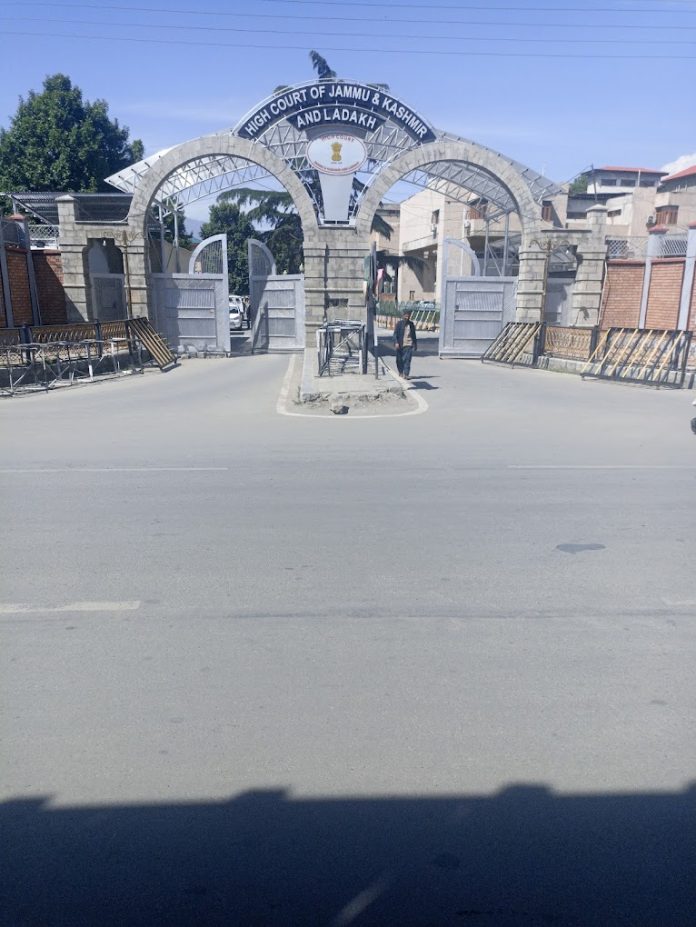The Jammu and Kashmir High Court has held that the suggestions given by the Counsel for the Petitioner , can be examined by the respondent authorities, especially considering the availability of Tribunals functioning in Union Territory of Jammu and Kashmir.
The Division Bench of Chief Justice N. Kotiswar Singh and Justice M. A. Chowdhary heard a Public Interest Litigation (PIL) raising an issue regarding the absence of any Debts Recovery Tribunal in the Union Territory of J&K.
It questions the assignment of all cases to the Debts Recovery Tribunal in Chandigarh. A plea has been made that since the Debts Recovery Tribunal, Chandigarh is not easily accessible, it amounts to denial of fundamental right of access to justice.
Relying on a judgment from the Constitution Bench of the Supreme Court rendered in “Anita Kushwaha Vs. Pushap Sudan” reported in 2016 AIR (SC) 3506, it has been contended that access to justice is a part of Article 21 of the Constitution of India, which is a fundamental right. As such, to effectuate the said right
(i) the State must provide an effective adjudicatory mechanism;
(ii) The mechanism so provided must be reasonably accessible in terms of distance;
(iii) The process of adjudication must be speedy; and
(iv) The litigant’s access to the adjudicatory process must be affordable.
It has been submitted that for an ordinary litigant to travel from the Union Territory of J&K and Union Territory of Ladakh to Chandigarh is not only costly but, due to the sheer distance and the lack of proper connectivity, it will cause significant inconvenience to the litigants.
The counsel for the petitioner has submitted that Section 4(2) of the Recovery of Debts and Bankruptcy Act, 1993, provides that notwithstanding anything contained in sub-section (1), the Central Government may-
(a) authorise the Presiding Officer of any other Tribunal established under any other law for the time being in force to discharge the function of the Presiding Officer of a Debt Recovery Tribunal under this Act in addition to his being the Presiding Officer of that Tribunal; or
(b) authorise the judicial member holding post as such in any other Tribunal, established under any other law for the time being in force, to discharge the functions of the Presiding Officer of Debts Recovery Tribunal under this Act, in addition to his being the judicial Member of that Tribunal.
It has been submitted that since the Debts Recovery Tribunal has already been established in Chandigarh, nothing prevents the Central Government from authorizing a Presiding Officer of any of the Tribunals functioning in the Union Territory of Jammu and Kashmir to exercise the powers to discharge the functions of Presiding Officer of Debts Recovery Tribunal under the Recovery of Debts and Bankruptcy Act, 1993.
“In our view, this is a suggestion that can be examined by the respondent authorities, especially considering the availability of Tribunals functioning in Union Territory of Jammu and Kashmir.”
The counsel for the petitioner has also suggested immediate setting up of a Circuit Bench of the Debts Recovery Tribunal, Chandigarh in Srinagar and Jammu.
Matter is listed on 18.12.2023 for further hearing.


